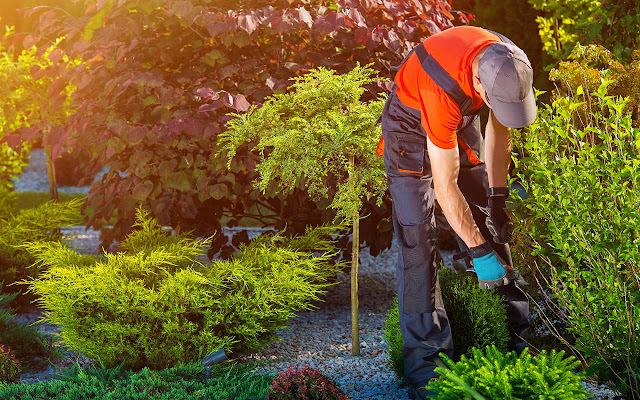5 Tips for Eco-Friendly Garden Maintenance Practices
Taking care of your garden is not only a way to create a beautiful outdoor space but also an opportunity to connect with nature. However, it's essential to approach garden maintenance in an eco-friendly way to minimise harm to the environment.
By implementing sustainable practices, you can ensure that your garden thrives while minimising your ecological footprint.
In this blog post, we will share five tips for eco-friendly garden maintenance Christchurch that will help you create a thriving garden while preserving the planet's resources.
1. Use Organic Fertilisers
The first tip to practice eco-friendly garden maintenance is to opt for organic fertilisers instead of chemical-based ones. While chemical fertilisers may provide quick results, they can have long-term negative impacts on soil health and water quality. Organic alternatives such as compost, manure, or worm castings not only supply essential nutrients to your plants but also improve soil structure and microbial activity. By using organic fertilisers, you contribute to the overall health of your garden while reducing the risk of environmental contamination.
2. Embrace Companion Planting
Companion planting is a technique that involves strategically growing different plant species together for mutual benefit. By combining compatible plants, you can create a natural ecosystem that promotes biodiversity and reduces the need for pesticides and herbicides. For example, planting marigolds alongside your vegetables can help deter pests naturally, reducing the need for chemical pest control methods. Additionally, companion planting can enhance pollination and improve soil fertility, leading to healthier and more productive plants.
3. Practice Water Conservation
Conserving water is crucial for sustainable garden maintenance Christchurch, especially in regions prone to drought. One way to conserve water is by installing a rain barrel to collect rainwater, which can then be used to water your plants during dry periods. This simple practice not only reduces your reliance on municipal water sources but also helps prevent stormwater runoff, which can contribute to water pollution. Additionally, consider using drip irrigation systems or soaker hoses instead of overhead sprinklers, as they deliver water directly to the roots, minimising evaporation and water waste.
4. Implement Integrated Pest Management
Integrated Pest Management (IPM) is an environmentally friendly approach to pest control that focuses on prevention rather than eradication. To implement IPM, start by identifying common pests in your area and learn about their life cycles and habits. This knowledge will help you choose appropriate preventive measures such as physical barriers, beneficial insects, or organic pest control products. By using IPM techniques, you can effectively manage pests while minimising harm to beneficial insects and the environment.
5. Mulch Your Garden Beds
Mulching your garden beds is a simple yet effective way to improve soil health and reduce maintenance requirements. Mulch acts as a protective layer that helps retain moisture, suppress weeds, and regulate soil temperature. Use organic materials such as wood chips, straw, or shredded leaves as mulch. Not only will this conserve water by reducing evaporation, but it will also provide nutrients to the soil as it breaks down over time. Additionally, mulch helps prevent soil erosion and creates a favourable environment for beneficial soil organisms.
Conclusion
Incorporating eco-friendly garden maintenance Christchurch practices into your routine will not only benefit the environment but also contribute to the overall health and productivity of your garden. By being mindful of the choices you make in caring for your plants, you can create a sustainable garden that thrives for years to come. Remember, small changes such as using organic fertilisers, practising companion planting, conserving water, implementing IPM, and mulching your garden beds can make a big difference when it comes to nurturing nature. So, embrace these eco-friendly practices and embark on a journey of sustainable gardening. Happy gardening!



Comments
Post a Comment